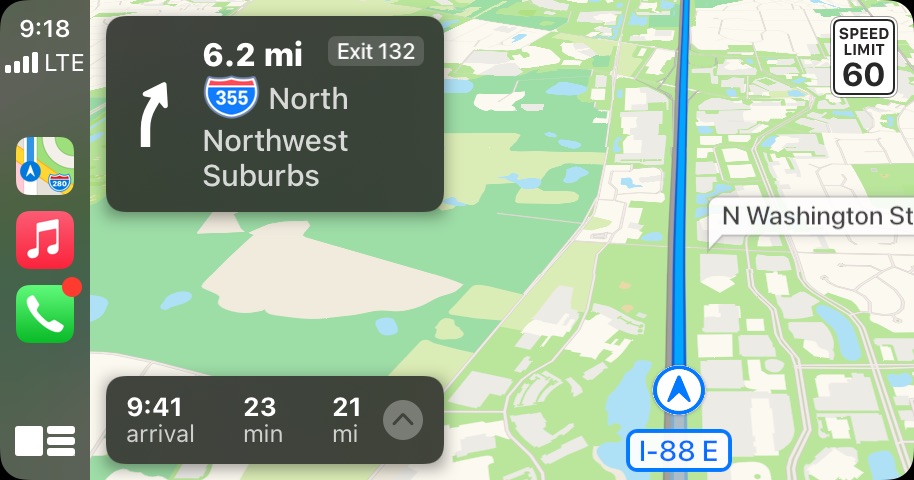Losing the ability to drive as a consequence of age-related health issues is often the most upsetting challenge older adults face post-retirement. It’s a fundamental part of independence and the feeling of self-reliance. Unfortunately, at some point, it becomes difficult, if not dangerous. These issues can cause restricted mobility, slowed reactions, and difficulty in hearing, making it risky for older adults to be driving on the roads. While age alone is no reason to take away the keys, there are certain factors that you and your homecare assistance provider should look out for.
In this blog, we will discuss the ways that age can affect driving skills as well as the health issues that make it challenging for some seniors to drive safely.
How Age Can Impact Your Driving Skills
Simple tasks like grocery shopping or running errands are something we all take for granted most of our lives. Especially in the United States, owning and driving a car is fundamental to our sense of independence and freedom.
Unfortunately, it’s impossible to ignore the fact that advanced age and declining motor skills have an adverse – and potentially lethal – effect on driving skills. Everyone ages differently, so there’s no “magic” age at which a person should give up driving and rely on others instead. However, all of us – at some point in our lives – will face challenges behind the wheel. Whether due to underlying medical illnesses or just the fact that the body and mind are no longer suited for operating a potentially deadly vehicle, continuing to drive out of pride means becoming a potential danger to the driver – and others – on the roads.
Medical Conditions
Various medical conditions can impact driving skills. Based on the symptoms and intensity, can be very risky for older adults to be on the roads without any care management personnel.
Many medical conditions can prevent someone from being cleared to drive temporarily or even for life:
- Fainting
- Epileptic shocks
- Sleep disorders
- The chances of a stroke
Additionally, certain mental health diagnoses like dementia or Parkinson’s disease can make it difficult for healthcare professionals to assess whether the patient would be fit to drive. Driving with dementia is a particularly dangerous mix, especially in its early stages when patients’ symptoms aren’t always noticeable. That’s why dementia home health care management needs to be highly vigilant and closely monitor changes in the older adult’s behavior.
Medications with Dangerous Side Effects
Another factor impacting driving skills is the side effects of medications that many older adults take. Most seniors are required to take a regular dose of prescription drugs to stay fit and healthy. Unfortunately, most of these drugs come with some adverse effects.
Common side effects of prescription drugs include:
- Dizziness
- Slower reaction time
- Drowsiness
- Fainting
- Blurred vision
- Inability to focus
It doesn’t take a medical expert to understand that all of these effects can be extremely dangerous if they occur while driving.
These symptoms are prevalent in people who take anti-anxiety pills, allergy medication, pain relief, or sleeping pills. Consequently, it’s imperative to discuss these potential side effects with your private duty caregiver and get the green signal from them before going behind the wheel.
Age-Related Health Issues that Impact Driving Skills
Now that you know of the main two reasons why age messes with driving skills let’s discuss the specific age-related health issues that are bound to make driving dangerous for older adults.
Reduced Vision Range
A big – and obvious – reason, why someone may need to stop driving, is reduced or impaired vision. As we age, we may develop various eye conditions like macular degeneration or glaucoma.
Fortunately, early detection and treatment can solve most of these vision-related diseases, so this may be a temporary pause if there are no other mitigating factors. It’s crucial to schedule regular eye appointments at increasingly frequent intervals to stay on top of it. Conditions can develop more quickly and suddenly in our 60’s and 70’s than they did in our 30’s and 40’s. This means increased vigilance is necessary.
Loss of Hearing
Hearing is another major sensory stimulation that we use when driving, and obviously also starts to weaken as we get older. Hearing loss can make it challenging for seniors to drive as they cannot notice honking, police sirens, or even sounds from their own cars. They won’t be able to detect approaching emergency vehicles or realize that their car’s engine might be acting up.
Again, the best way to counter this is regular checkups. If the hearing loss is significant, your audiologist can offer hearing aids to help. Also, keep the car interior as quiet as possible when an older adult is driving; it’ll help them concentrate on the sounds coming in from the outside environment.

In Summary – Get Professional Clearance
If you or a loved one cherishes driving, it can be tough – really tough – to deal with the decision to give it up. So before you get to that point here’s a checklist. Let the evidence make that decision – not a “gut feel”.
- Regular healthcare checkups will help the homecare personnel determine if the senior person is clear to drive.
- Consult the private duty caregiver or doctor and ask them about any possible side effects of illnesses or medication.
- Regular eyesight and hearing checks.
- Exercising regularly – even just regular 30 minutes walks
- Stretching – Especially the neck and oblique muscles. Mimic the body movements you will need to make behind the wheel.
- Fine Motor skills activities



